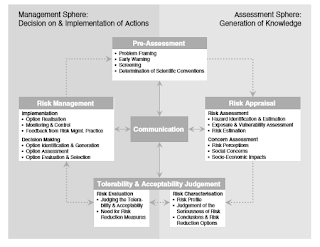It is time to implement the (policy and governance) science or to play people-policy interface.
Menimba ilmu di rantau, memupuk rasa rindu terhadap tanah air. Maka dari itu, kemudian rasa sepenanggungan ini membuat mahasiswa Indonesia di luar negeri berkumpul di bawah 'Perhimpunan Pelajar Indonesia' (PPI). PPI Wageningen berdiri (PPIW) sejak 1987, banyak hal telah dicapai untuk memberikan 'rumah' bagi para perantau pelajar Indonesia, dan juga kontribusi lainnya bagi Indonesia serta komunitas lain di sekitar Wageningen.
Menimba ilmu di rantau, memupuk rasa rindu terhadap tanah air. Maka dari itu, kemudian rasa sepenanggungan ini membuat mahasiswa Indonesia di luar negeri berkumpul di bawah 'Perhimpunan Pelajar Indonesia' (PPI). PPI Wageningen berdiri (PPIW) sejak 1987, banyak hal telah dicapai untuk memberikan 'rumah' bagi para perantau pelajar Indonesia, dan juga kontribusi lainnya bagi Indonesia serta komunitas lain di sekitar Wageningen.
Global change membuat fungsi PPIW juga terus
bertransformasi, tak hanya sebagai 'paguyuban' Indonesia, tapi juga bisa
menjadi hub bagi ide-ide inovasi para mahasiswa Indonesia, untuk menjadi cikal
bakal 'think tank' bagi isu strategis di tanah air dan membuka potensi untuk
kerjasama internasional (Fig 1). Transformasi ini yang diharapkan menjadi PPIW
2.0.
Figure 1. Integrated programmes



